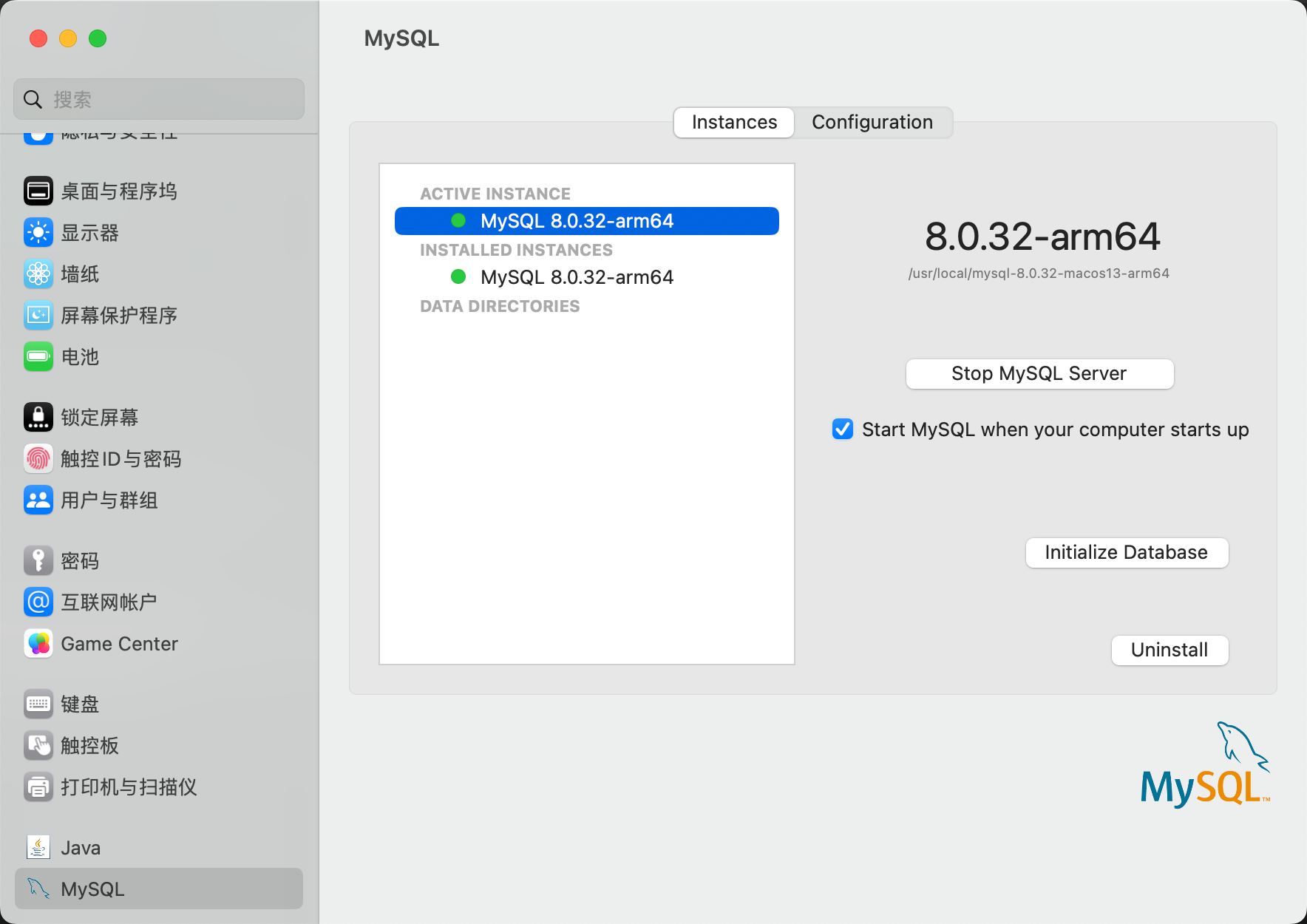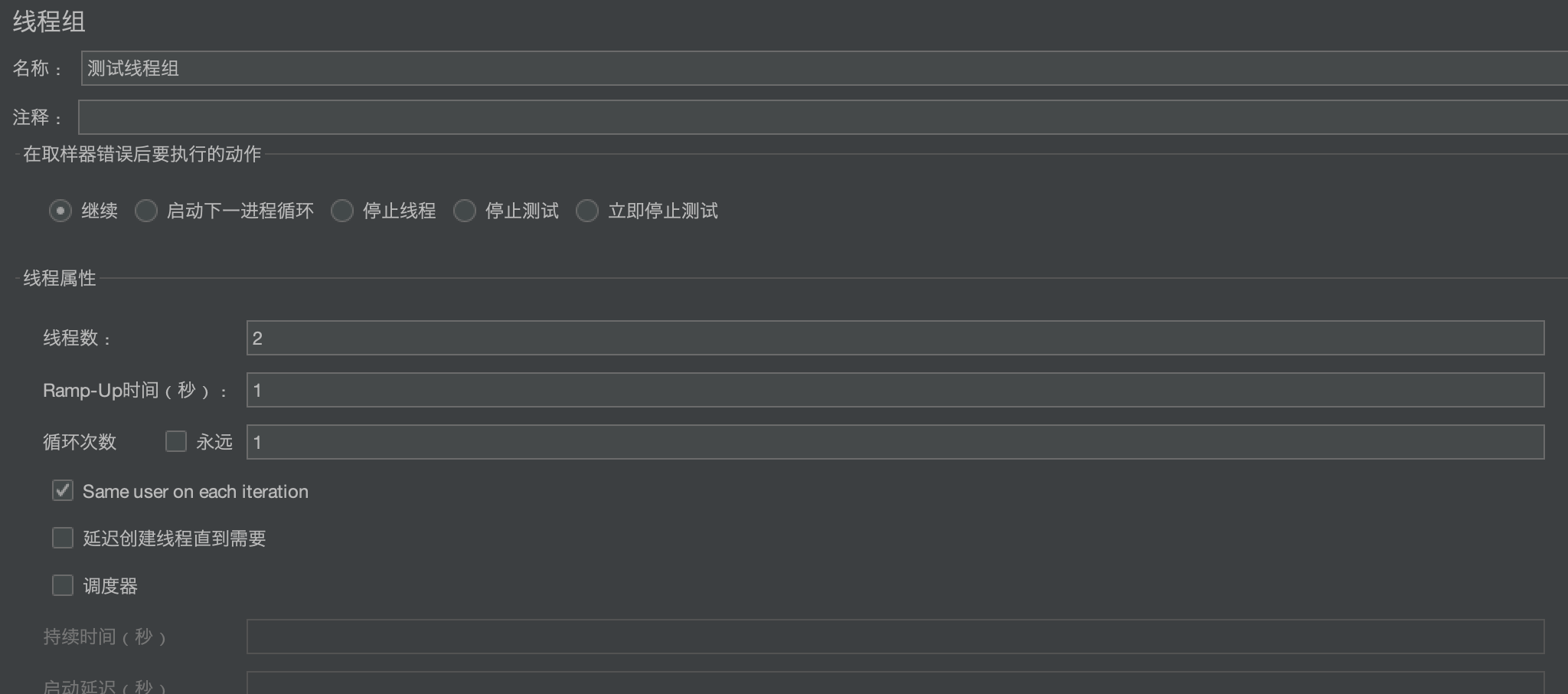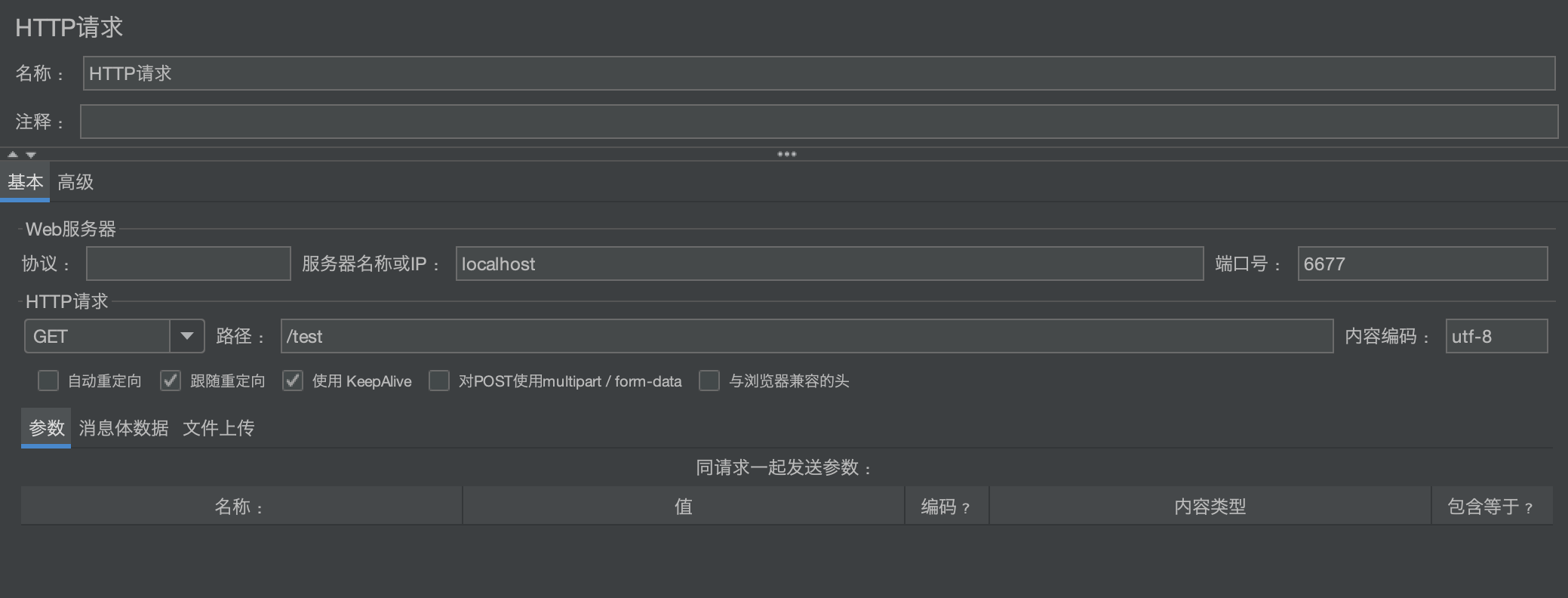Java开发环境配置
前言
- 本文主要以OS为Mac Apple芯片版本为主进行记录,其他OS均可在提供的官网链接中找到相应的配置说明;
- 本文暂时记录了Homebrew、JDK8、Maven3.9.0、MySQL8.0、Redis、Jmeter这些程序的环境配置,其他程序待后续使用时再补充。
Homebrew
官网下载地址:https://brew.sh/index_zh-cn
配置说明
- 下载步骤
- 打开终端》输入
/bin/zsh -c "$(curl -fsSL https://gitee.com/cunkai/HomebrewCN/raw/master/Homebrew.sh)" - 选择镜像,如中科院
- 等待下载完成,如果提示需要安装git,则先安装git,再执行shell安装脚本
- 安装完成后,“brew -v”查看版本
- 安装目录/opt/homebrew
- 卸载
/bin/zsh -c "$(curl -fsSL https://gitee.com/cunkai/HomebrewCN/raw/master/HomebrewUninstall.sh)"
- 打开终端》输入
- 使用
# 搜索包 brew search 包 # 安装包 brew install 包 # 查看包信息 brew info 包 # 卸载包 brew uninstall 包 # 显示已安装的包 brew list # 显示已安装包的路径 brew list 包 # 查看brew的帮助 brew –help # 更新 brew update # 检查过时(是否有新版本),这会列出所有安装的包里,哪些可以升级 brew outdated brew outdated 包 # 升级所有可以升级的软件们 brew upgrade brew upgrade 包 # 清理不需要的版本极其安装包缓存 brew cleanup brew cleanup 包
JDK
官网下载地址:https://www.oracle.com/java/technologies/javase/javase8-archive-downloads.html
配置说明
-
windows:https://www.runoob.com/java/java-environment-setup.html
-
mac
- jdk1.8
- 压缩包下载:只能下载zulu jdk8的版本:https://www.azul.com/downloads-new/?package=jdk#zulu 环境变量配置参考下面的jdk17配置
- dmg下载:
- Oracle官网下载:下载“JDK-8U202-macOSX-X64.dmg”或其他macOS版本,一步步点击即可【X64和Apple芯片均兼容】
- 安装路径:/Library/Java/JavaVirtualMachines/jdk1.8.0_351.jdk/Contents/Home
- 环境变量配置:/Library/Internet Plug-Ins/JavaAppletPlugin.plugin/Contents/Home/bin/java
- 完全卸载:
- 删除jdk
sh sudo rm -rf /Library/Java/JavaVirtualMachines/jdk1.8.0_351.jdk - 删除运行路径和环境
sh sudo rm -rf /Library/Internet\ Plug-Ins/JavaAppletPlugin.plugin sudo rm -rf /Library/PreferencesPanes/JavaControlPanel.prefPane sudo rm -rf /Library/Application\ Support/Java
- 删除jdk
- jdk17
- 下载压缩包:https://download.oracle.com/java/17/latest/jdk-17_macos-aarch64_bin.tar.gz
- 解压到local目录:
sudo tar -zxvf Downloads/jdk-17_macos-aarch64_bin.tar.gz -C /usr/local - 配置环境变量(用户级别)
# 编辑环境变量文件 vim ~/.zshrc # 设置内容 #jdk export JAVA_HOME="/usr/local/jdk-17.0.6/Contents/Home" # 保存并退出 wq # 使配置生效 source ~/.zshrc
- jdk1.8
-
linux
- Oracle官网下载:下载"jdk-8u202-linux-x64.tar.gz"或者其他linux版本
- 解压:
tar -zxvf jdk-8u202-linux-x64.tar.gz -C /usr/local - 配置环境变量
# 环境变量配置存放在/etc/profile,改变前先复制一份备用 cp /etc/profile /etc/profile-init # 打开编辑文件 vim /etc/profile # 在最前面或最后面添加JDK环境变量 export JAVA_HOME=/download/jdk1.8.0_202 export PATH=$JAVA_HOME/bin:$PATH export CLASSPATH=.:$JAVA_HOME/lib/dt.jar:$JAVA_HOME/lib/tools.jar
Maven
官网下载地址:https://maven.apache.org/download.cgi
配置说明
- 环境变量配置参考:https://www.runoob.com/maven/maven-setup.html
- mac环境变量配置
# 编辑环境变量文件 vim ~/.zshrc # 设置内容 #maven export MAVEN_HOME=/usr/local/apache-maven-3.9.0 export PATH=$PATH:$MAVEN_HOME/bin # 保存并退出 wq # 使配置生效 source ~/.zshrc - setting.xml文件配置:https://maven.apache.org/settings.html
- 自用setting.xml
<?xml version="1.0" encoding="UTF-8"?> <settings xmlns="http://maven.apache.org/SETTINGS/1.2.0" xmlns:xsi="http://www.w3.org/2001/XMLSchema-instance" xsi:schemaLocation="http://maven.apache.org/SETTINGS/1.2.0 https://maven.apache.org/xsd/settings-1.2.0.xsd"> <!-- 本地仓库 --> <localRepository>/Users/mybook/DevelopTools/apache-maven-3.9.0/Repository</localRepository> <pluginGroups></pluginGroups> <proxies></proxies> <!--私服用户配置,没用私服不需要配置了--> <servers></servers> <!--镜像中央仓库--> <mirrors> <mirror> <id>alimaven</id> <name>aliyun maven</name> <url>http://maven.aliyun.com/nexus/content/groups/public/</url> <mirrorOf>central</mirrorOf> </mirror> <mirror> <id>central</id> <name>Maven Repository Switchboard</name> <url>https://repo1.maven.org/maven2/</url> <mirrorOf>central</mirrorOf> </mirror> <mirror> <id>jboss-public-repository-group</id> <mirrorOf>central</mirrorOf> <name>JBoss Public Repository Group</name> <url>http://repository.jboss.org/nexus/content/groups/public</url> </mirror> </mirrors> <!--私服用户配置,没用私服不需要配置了--> <profiles></profiles> <activeProfiles></activeProfiles> </settings>
MySQL
官网下载地址:https://dev.mysql.com/downloads/mysql/
配置说明
- mac
-
下载:直接下载"macOS 13 (ARM, 64-bit), DMG Archive ",一路点击,密码选择"use legacy password encryption",设置root用户的登录密码
-
配置环境变量
# 编辑 vim ~/.zshrc # 配置内容 #mysql export PATH=$PATH:/usr/local/mysql/bin# export PATH=$PATH:/usr/local/mysql/support-files # 保存并退出 wq # 使配置生效 source ~/.zshrc # 查看版本 mysql --version -
启动、安装/卸载、配置
![]()
-
- linux
- 下载:https://dev.mysql.com/downloads/mysql/
- 解压:tar -xvJf mysql-8.0.21-linux-glibc2.12-x86_64.tar.xz
- 重命名:mv mysql-8.0.21-linux-glibc2.12-x86_64 mysql8.0
- 创建数据存储目录:mkdir /../mysql8.0/data
- 创建mysql用户和用户组,并设置权限
# 创建mysql用户和用户组 groupadd mysql useradd -g mysql mysql # 给mysql用户赋予权限 chown -R mysql.mysql /usr/local/mysql/ - 初始化mysql信息
cd /usr/local/mysql/bin # 初始化基本信息 ./mysqld --user=mysql --basedir=/usr/local/mysql --datadir=/usr/local/mysql/data/ --initialize # 获取临时密码:最后一行 root@localhost: lxkqDibw2?Yn - 添加mysql服务到系统
cd /usr/local/mysql/mysql8.0 # 将mysqld服务添加到系统 cp -a ./support-files/mysql.server /etc/init.d/mysql # 授权以及添加服务 chmod +x /etc/init.d/mysql chkconfig --add mysql # 创建my.cnf文件 sudo vim /etc/my.cnf # 设置权限 sudo chmod 664 /etc/my.cnf# Example MySQL config file for small systems. # # This is for a system with little memory (<= 64M) where MySQL is only used # from time to time and it's important that the mysqld daemon # doesn't use much resources. # # MySQL programs look for option files in a set of # locations which depend on the deployment platform. # You can copy this option file to one of those # locations. For information about these locations, see: # http://dev.mysql.com/doc/mysql/en/option-files.html # # In this file, you can use all long options that a program supports. # If you want to know which options a program supports, run the program # with the "--help" option. # The following options will be passed to all MySQL clients [client] default-character-set=utf8 #password = k0Ui&wV(Z3yt port = 3306 socket = /tmp/mysql.sock # Here follows entries for some specific programs # The MySQL server [mysqld] #配置mysql的文件夹 和 mysql data目录 basedir=/usr/local/mysql/mysql8.0 datadir=/usr/local/mysql/mysql8.0/data default-storage-engine=INNODB character-set-server=utf8 collation-server=utf8_general_ci port = 3306 socket = /tmp/mysql.sock skip-external-locking key_buffer_size = 16K max_allowed_packet = 1M table_open_cache = 4 sort_buffer_size = 64K read_buffer_size = 256K read_rnd_buffer_size = 256K net_buffer_length = 2K thread_stack = 128K # Don't listen on a TCP/IP port at all. This can be a security enhancement, # if all processes that need to connect to mysqld run on the same host. # All interaction with mysqld must be made via Unix sockets or named pipes. # Note that using this option without enabling named pipes on Windows # (using the "enable-named-pipe" option) will render mysqld useless! # #skip-networking server-id = 1 # Uncomment the following if you want to log updates #log-bin=mysql-bin # binary logging format - mixed recommended #binlog_format=mixed # Causes updates to non-transactional engines using statement format to be # written directly to binary log. Before using this option make sure that # there are no dependencies between transactional and non-transactional # tables such as in the statement INSERT INTO t_myisam SELECT * FROM # t_innodb; otherwise, slaves may diverge from the master. #binlog_direct_non_transactional_updates=TRUE # Uncomment the following if you are using InnoDB tables #innodb_data_home_dir = /usr/local/mysql/data #innodb_data_file_path = ibdata1:10M:autoextend #innodb_log_group_home_dir = /usr/local/mysql/data # You can set .._buffer_pool_size up to 50 - 80 % # of RAM but beware of setting memory usage too high #innodb_buffer_pool_size = 16M #innodb_additional_mem_pool_size = 2M # Set .._log_file_size to 25 % of buffer pool size #innodb_log_file_size = 5M #innodb_log_buffer_size = 8M #innodb_flush_log_at_trx_commit = 1 #innodb_lock_wait_timeout = 50 [mysqldump] quick max_allowed_packet = 16M [mysql] no-auto-rehash # Remove the next comment character if you are not familiar with SQL #safe-updates [myisamchk] key_buffer_size = 8M sort_buffer_size = 8M [mysqlhotcopy] interactive-timeout
服务启动/关闭/登录/退出
- mysql服务启动/关闭
# 启动mysql服务 service mysql start # 查看mysql运行状态 service mysql status # 将mysql命令添加到服务 ln -s /usr/local/mysql/mysql8.0/bin/mysql /usr/bin # 关闭mysql服务 service mysql stop - mysql服务登录/退出
# 登录 mysql mysql -uroot -p # 退出 quit; # 修改root密码 mysql> ALTER USER 'root'@'localhost' IDENTIFIED WITH mysql_native_password BY '123456'; # 刷新缓存 flush privileges;
客户端
推荐两款使用下来体验很不错的客户端: Navicat(收费,或找破解版)、DBeaver(开源免费,但下载程序后还需要下载驱动才可使用)
Redis
官网下载:https://redis.io/docs/getting-started/
配置说明
- mac:https://redis.io/docs/getting-started/installation/install-redis-on-mac-os/
- linux:https://redis.io/docs/getting-started/installation/install-redis-on-linux/
- windows:https://redis.io/docs/getting-started/installation/install-redis-on-windows/
Jmeter
官网下载地址:https://jmeter.apache.org/download_jmeter.cgi
配置说明
- 下载:官网下载太慢,选择阿里云镜像下载,下载地址 https://mirrors.aliyun.com/apache/jmeter/binaries/?spm=a2c6h.25603864.0.0.436f69a5u1Mo7X
- 解压:
sudo tar -zxvf apache-jmeter-5.5.tgz -C DevelopTools - 启动配置修改:/bin/jmeter.properties
# 修改语言 language=zh_en改成language=zh_CN # 修改编码 sampleresult.default.encoding=ISO-8859-1 改为 UTF-8 - 启动:
sh /bin/jmeter.sh - 使用(参考文章:https://www.jianshu.com/p/20fac18f478f)
-
添加线程组
![image-20220326101212758]()
![image-20220326101230445]()
-
添加Http请求
![image-20220326101249442]()
![image-20220326101314589]()
-
启动测试即可
-








 浙公网安备 33010602011771号
浙公网安备 33010602011771号